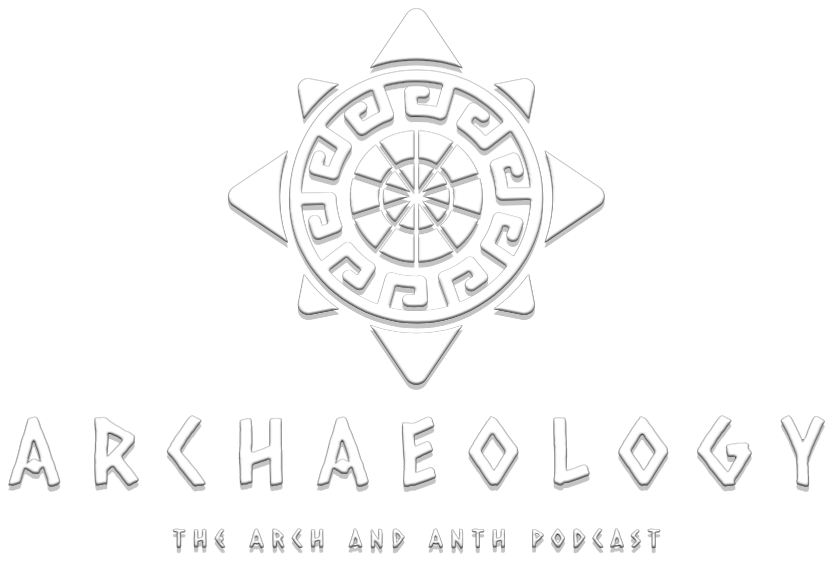Episode 33: Navigating the Intricacies of Bioarchaeology as an Undergraduate
Embarking on the journey of bioarchaeology offers a unique blend of excitement and ethical contemplation, especially for undergraduates stepping into the field for the first time. Quentin Burke’s initial foray into this realm, underpinned by a US National Science Foundation Research Experience for Undergraduates (NSF-REU) grant, presents a vivid tapestry of learning, discovery, and ethical inquiry.
The Genesis of a Bioarchaeologist
Quentin’s Leap into Bioarchaeology
Quentin Burke’s summer adventure began at Quinnipiac University, where he, along with seven peers, delved into the depths of bioarchaeology. This initial experience was not just about unearthing the past but also confronting the ethical dimensions intertwined with the study of human remains.
Structuring the Unstructured: The Program’s Blueprint
The NSF-REU program structured a comprehensive curriculum that balanced technical skills, such as studying cranial anatomy, with discussions on the ethical implications of handling human remains. Quentin’s journey was a meticulous blend of hands-on research and reflective learning.
Ethical Foundations in Bioarchaeology
The Dilemma of the Dead: Ethical Considerations
One of the program’s core components was exploring the ethical landscape of bioarchaeology. Quentin and his colleagues engaged with various texts and experts, delving into the moral quandaries that practitioners face when working with the remnants of once-living beings.
Learning from the Past: Historical Contexts and Ethical Frameworks
Understanding the historical context of human remains and the cultures they belonged to is crucial in bioarchaeology. Quentin’s experience emphasized the importance of respecting these contexts, fostering a deep appreciation for the lives behind the bones.
The Practicalities of Bioarchaeological Work
Hands-On with History: Analyzing Cranial Anatomy
Quentin’s recount of studying cranial anatomy highlights the meticulous and respectful approach required in bioarchaeology. It’s a testament to the program’s commitment to blending scientific rigor with ethical sensitivity.
Beyond the Bones: The Multidisciplinary Approach
Bioarchaeology isn’t just about the bones. Quentin’s training underscored the field’s interdisciplinary nature, incorporating aspects of anthropology, history, and forensic science to build a holistic understanding of past human lives.
Ethical Dialogues and Debates
Navigating Ethical Waters: Discussions and Dilemmas
Central to Quentin’s educational journey were the vibrant discussions on ethics. These conversations often navigated complex issues, such as the rights of the dead and the responsibilities of the living, offering Quentin and his peers invaluable insights into the ethical backbone of bioarchaeological research.
The Voices of Guidance: Learning from Experts
The program provided a platform for Quentin to hear from seasoned professionals and ethicists in the field. These interactions enriched his understanding of the ethical nuances in bioarchaeology, laying a solid foundation for his future in the discipline.
The Impact of Ethical Education in Bioarchaeology
Shaping Future Bioarchaeologists: The Role of Ethics in Education
Quentin’s reflections on the ethical component of his training underscore the significance of integrating ethics into bioarchaeology education. It prepares students not only to be skilled scientists but also thoughtful stewards of the human past.
Ethical Frontiers: Continuing the Conversation
The ethical discourse in bioarchaeology is ever-evolving. Quentin’s journey illustrates the importance of ongoing discussions and debates within the community, ensuring that the field grows with both scientific advancements and ethical integrity.
A Journey of Discovery and Reflection
Quentin Burke’s first experience in bioarchaeology, through the lens of the NSF-REU program, was a profound journey of discovery, learning, and ethical contemplation. As the first chapter in an eight-part series, Quentin’s story sets the stage for exploring the multifaceted world of bioarchaeology, where the past and present converge in a dialogue of respect, curiosity, and ethical responsibility.
